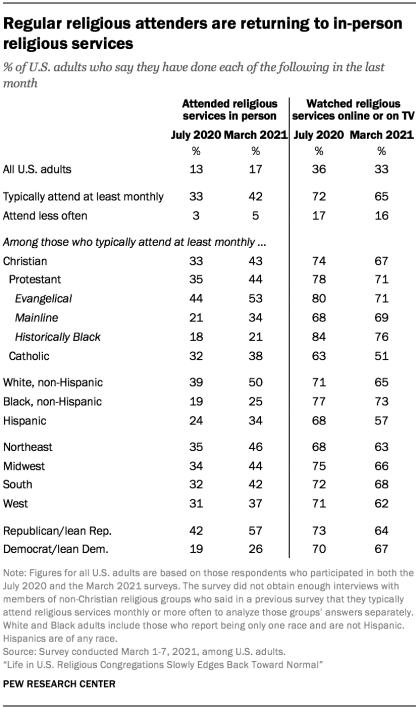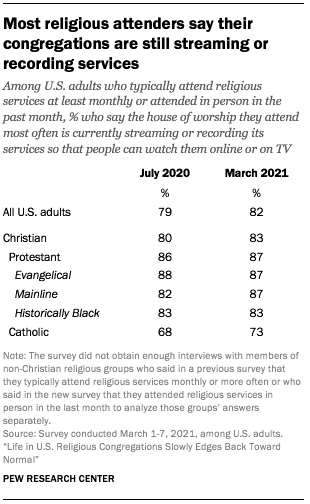Church attendance nationwide has leveled off as more congregations have lifted COVID-19 meeting restrictions and safety precautions, according to a Pew Research Center study.
In July 2020, a few months after the pandemic lockdowns began, 13 percent of U.S. adults said they attended religious services in person the previous month. In March 2021, Pew reported that the figure had increased to 17 percent. And in September 2021, the share of adults who said they attended a religious service in the past month rose to 26 percent.

Sam Rainer, president of Church Answers and pastor of West Bradenton Baptist Church in Florida, says that he believes “there are times and there are seasons in the life of the church where a plateau is not a bad place to be.”
“If you are holding your own with attendance right now, if you are stable in attendance, I view that as a victory, because it’s been harder to draw new people in during this season,” he said. “A lot of churches have lost people to COVID. Many have lost people to death that would have occurred anyway just naturally in the church. As people move on and pass on, you have to replace them with new people. And what that means is if you’re stable right now, you do have new people coming in, at least at the rate of those who are no longer able to be at the church. So I would view stability as success right now.”
The study suggested that the plateau could change depending on life circumstances.
“Assessing the impact of the pandemic on religious service attendance remains difficult,” it said. “The ultimate course of the pandemic is still unclear. What appears at this moment to be a plateau in religious service attendance could be followed by a rise if the pandemic gradually recedes or by a drop if a new, highly infectious coronavirus variant emerges.”
Rainer said he agreed with the study about how things could change in the next few years depending on what life brings. However, he said, church attendance might not return to the numbers seen before the pandemic anytime in the near future.
“I believe that at some point, the practices will return to normal when it comes to restrictions,” he said. “It takes two to three years of behavior change for things to come back to normal. So I would assume that in the next couple of years, we are going to see a return to similar practices as it were before the pandemic, at least in terms of restrictions lifting.”
–Alan Goforth | Metro Voice









